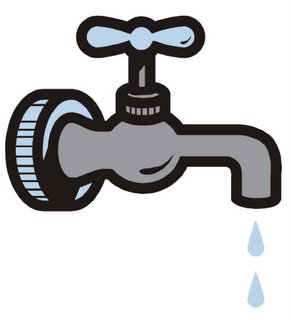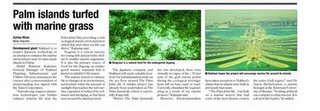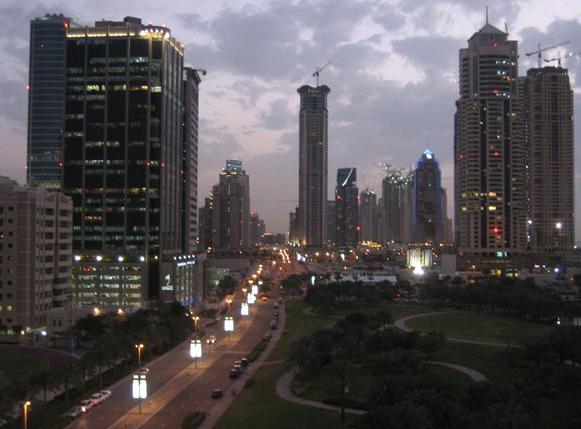
My friend S. has started a really cool thing. She has noticed (rightly so) that we do not do enough to help protect our environment. This is not news, but we all know the UAE is not an environmentaly-friendly place, what with all the building construction, car fumes, destroying natural habitats in order to build islands in the middle of the sea, etc.
She also realized that not everyone has the time, energy or passion to go out there and become an environmentaly-friendly activist....but that we can still all make a difference, no matter how small it is.
So, once a month, all of S.'s friends (including yours truly) get a newsletter highlighting a small tip that we can all apply in our daily lives. And I decided to share S.'s tips with you (S. I hope you don't mind!), because I think that although we might already know about some of the facts she states, it can't hurt to think about them again, and realise that each and every one of us can, in fact, make a difference.
So here is the first "You can make a difference" tip:
- When shaving or brushing your teeth, if the water is running: 15 litres get wasted for the teeth (10 bottles of water).
- Another 40 litres for shaving (26 bottles)
- A little math: 5L per min of running water. If it takes 3 min to brush, twice a day, every day for one year only, that's 10 950 litres - 7 300 bottles. For teeth only. ONE person.
- If the tap is dripping at the rate of one drop per second, expect to waste 10 220 liters of water per year.
So....next time you brush your teeth or shave, make sure you turn the water off. And make sure that tap is not dripping!
Oh and S., happy early birthday! Have fun tomorrow!
Update:

This article was published in today's (March 5th) Emirates Today. It's as if they read my comment about Nakheel's PR publicising their efforts to maintain and improve marine life!
Development giant Nakheel is to employ Japanese technology in an attempt to enhance the marine environment near its man-made islands in Dubai.
Abdul Rahman Kalantar, General Manager of Nakheel Planning, Infrastructure and Utilities Division, announced the venture after a memorandum of understanding was signed with the Taisei Corporation.
“Introducing seagrass plantation technologies can further enhance [marine life near the Palm Jebel Ali], providing a rich ecological marine environment in which fish and other sea life can thrive,” Kalantar said.
Seagrass is a crucial nursery for young fish and provides shelter to smaller marine organisms. It is also the primary source of food for the dugong, an endangered marine mammal that is known to inhabit UAE waters.
The marine system is vulnerable to changes in its environment, particularly when the amount of sunlight that reaches the sub-surface vegetation is reduced by sediment and dredging, as has been seen around the island projects.
The Japanese company and Nakheel will study suitable locations for transplantation trials on the sea floor around The Palm Jebel Ali. A similar project has already been undertaken at The Palm Jumeirah, which is reportedly doing well.
“Before The Palm Jumeirah site was developed, there were virtually no signs of life – 95 per cent of the grid survey points during the ecological investigations fell on bare sand or mud. Currently, abundant life is generating as a result of our marine projects,” Kalantar said.
However, Environmentalists have taken exception to Nakheel’s claims that its islands were built in previously bare areas.
“The Palm Jebel Ali... was built on a marine reserve that had some of the most diverse coral in the entire Gulf region,” said Dr Aaron Bartholomew, a marine biologist at the American University of Sharjah.“Nothing artificial can compare to what was lost. It is a drop in the bucket,” he added.



2 comments:
Thanks for the comment Geo. You obviously know much more about the subject than I do.
You are right, I do get my information from newspapers, but if what these newspapers are saying isn't true, and if their only objective is to stir controversy, then why doesn't a company like Nakheel (who I am sure can afford a good PR agency) step forward and deny those claims, and better yet, prove them wrong? I am sure the newspapers would publish that as well
Hey Geo,
How much did Nakheel pay you to say that?
Nakheel OFF!
Post a Comment